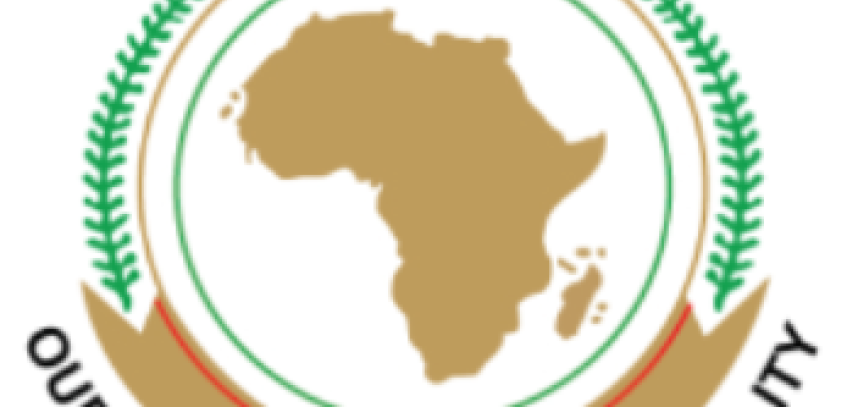Indicative Questions to State Parties in respect of Article 5 of the African Charter
Article 5 of the African Charter on Human and Peoples’ Rights (‘the African Charter’ or ‘the Charter’) provides as follows:
‘Every individual shall have the right to the respect of the dignity inherent in a human being and to the recognition of his legal status. All forms of exploitation and degradation of man particularly slavery, slave trade, torture, cruel, inhuman or degrading punishment and treatment shall be prohibited.’
The Committee for the Prevention of Torture in Africa (‘the Committee’ or ‘CPTA’) has prepared the questions set out here to guide State Parties as they prepare periodic state reports for presentation to the African Commission on Human and Peoples’ Rights (the Commission) in terms of Article 62 of the Charter. These indicative questions may also be used by national human rights institutions, non-governmental organisations and other stakeholders as they prepare alternative reports for submission to the Commission. The questions are informed by various instruments, including the Guidelines and Measures for the Prohibition and Prevention of Torture, Cruel, Inhuman or Degrading Treatment or Punishment in Africa (the Robben Island Guidelines).
I. Prohibition of Torture
1. Has the State ratified the Convention against Torture and Other Cruel, Inhuman or Degrading Treatment or Punishment (CAT)? Has the State adopted specific legislation criminalising torture in accordance with the provisions of CAT and the Robben Island Guidelines? If not, is the enactment of this legislation envisaged in the near future? If so, please specify when and the steps taken in that regard.
2. Explain whether the State is a party to the Optional Protocol to the Convention Against Torture and Other Cruel, Inhuman or Degrading Treatment or Punishment (OPCAT). If so, explain whether it has established a fully functional, effective and independent National Preventive Mechanism (NPM) as required under OPCAT in order to ensure independent oversight of places of detention for purposes of preventing torture or ill-treatment. If not, what steps, if any, have been taken to establish an NPM?
3. Is there a law that prohibits the admission of evidence obtained through torture?
4. Explain the measures in place to ensure that no one is expelled or extradited to a country where he or she is at risk of being subjected to torture or ill-treatment.
II. Prevention of Torture
5. Explain whether training programmes on the prevention and prohibition of torture or ill-treatment are given to law enforcement officers, gendarmerie, prison administration officials and the judiciary. Do those programmes include a component on procedures used to document torture or ill-treatment according to international standards?
6. Explain whether effective, accessible and independent complaints mechanisms are in place with powers to receive, investigate and take appropriate actions on allegations of torture or ill-treatment committed by law enforcement officials.
7. Explain the measures in place to ensure that alleged victims of torture or ill-treatment, their families, witnesses, those conducting investigations, etc. are protected from violence, threats of violence or any other form of intimidation or reprisals that may arise pursuant to a complaint or investigation.
8. Elaborate on the measures which have been taken to eradicate torture or ill-treatment in correctional institutions and other places of detention. What progress has been realised towards the total eradication of torture or ill-treatment in those facilities?
9. Elaborate the measures the State is taking to ensure the prohibition of unauthorised or unofficial places of detention. Are there any legal sanctions against officials who use such places of detention?
III. Responding to the Needs of Victims
10. Explain the legislative or other measures in place that uphold the right of victims of torture or ill-treatment to all forms of reparation, including compensation, rehabilitation, satisfaction and guarantees of non-repetition.
11. Provide statistical data relevant to the prohibition of torture or ill-treatment in the country, including data on complaints, investigations, prosecutions and convictions in cases of torture or ill-treatment as well as on the redress provided to victims.
12. Further to the Commission’s Resolution ACHPR/Res.303 (LVI) 2015 - Resolution on the Right to Rehabilitation for Victims of Torture, are there legislative or other measures in place to uphold the right to rehabilitation of victims of torture or ill-treatment, including medical and psychological services, social services, community and family-oriented assistance, vocational training and education?
13. What measures are in place to ensure that victims of torture or ill-treatment from marginalised or vulnerable groups access reparative measures without discrimination?
IV. Other
14. Indicate the measures which the State has taken to address instances of contemporary slavery in the country.
15. Explain the measures the State is taking to ensure the abolition of judicial and other corporal punishment in the country.
16. Further to ACHPR/Res. 275(LV) 2014: Resolution on Protection against Violence and Other Human Rights Violations against Persons on the Basis of their Real or Imputed Sexual Orientation or Gender Identity, adopted in 2014, has the State taken measures to address acts of torture or ill-treatment of lesbian, gay, bisexual, transgender and intersex persons and also provide effective redress to such victims?
17. Has the State taken measures to address acts of torture or ill-treatment against persons with albinism, including attacks, in accordance with the Commission’s Resolution ACHPR/Res.263 (LIV) 2013: Resolution on the Prevention of Attacks and Discrimination against Persons with Albinism?
18. Elaborate on measures taken by the State to protect persons with disabilities, particularly persons with psychosocial disabilities, from acts of torture or ill-treatment.









